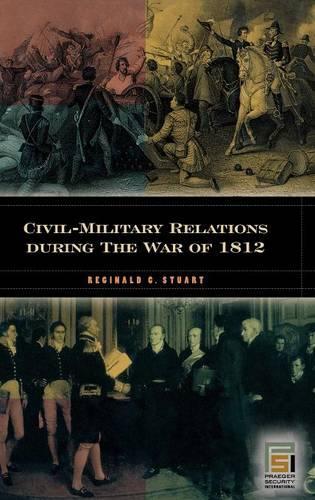
Civil-Military Relations during the War of 1812
(Hardback)
Publishing Details
Civil-Military Relations during the War of 1812
By (Author) Reginald C. Stuart
Bloomsbury Publishing PLC
Praeger Publishers Inc
25th August 2009
United States
Classifications
General
Non Fiction
973.52
Physical Properties
Hardback
174
Description
Civil-military relations in the era of the War of 1812 must be seen as a broad theme, not just the particular relationships between officers, military organizations, and civil government and civilians. Civil-military attitudes were interwoven in the lives of Americans and must be seen as ideological and social in character with political expressions. Secondarily, the War of 1812 was a transition period from the matrix of ideas inherited from English history and the War of Independence experience with an Atlantic orientation toward the national experience and continental orientation of the 19th Century. This book is a thematic exploration of civil-military themes in the era of the War of 1812. It begins with the immediate post-American Revolutionary era, the Constitutional Founding, and works through events in the 1790s and 1800s that illustrated how the Founding Fathers used the military as an aid to the civil power to maintain political order; how republican ideology colored the kind of military system American leaders in this era believed their country should have: in particular the heavy reliance upon the militia as an ideological ideal that failed in practice; the first glimmerings of volunteerism as an alternate, and later substitute for the militia idea; and an episodic use of military power to enforce civil political authority. The evolution of these civil-military themes occurred within the larger evolution of the United States as a small country with an Atlantic orientation perched along the eastern seaboard of North American into a continental country after 1815 because of the defeat of Indian tribes, the eclipse and elimination of Spanish territorial control in the Gulf of Mexico littoral and the trans-Mississippi West, and the rapprochement with Great Britain on sharing upper North America.
Reviews
Recommended. Public and undergraduate libraries. * Choice *
Author Bio
Reginald C. Stuart is Professor of History and Political Studies at Mount Saint Vincent University in Halifax where he teaches Canadian-American Relations and comparative Canadian-American politics. He has published numerous books, and articles and reviews in scholarly periodicals and newspapers.
